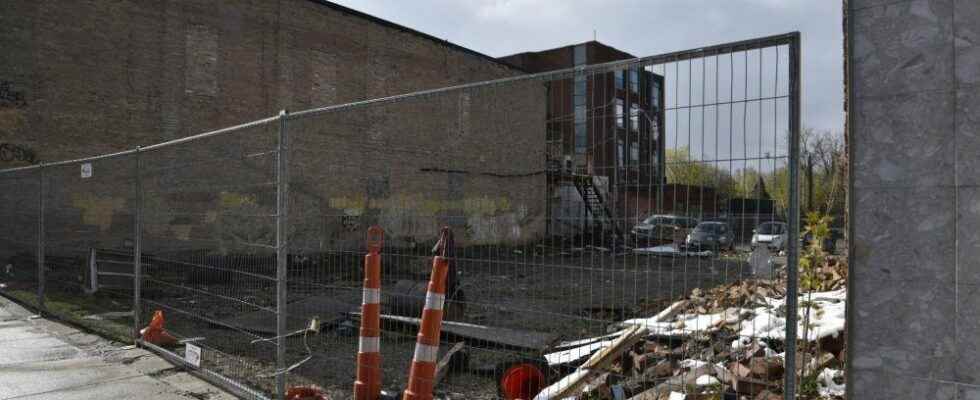Squabbles at city hall, absentee landowners and a lawsuit against a developer.

Squabbles at city hall, absentee landowners and a lawsuit against a developer.
The site of a former landmark movie theater in Woodstock — sitting in disrepair downtown — has been at the center of a polarizing debate for almost a decade.
“It’s been a detriment to the downtown for all of these years, ever since the roof collapsed and it became a structurally unsafe building,” said David Creery, the city’s top administrator.
But this uncertain chapter may soon end after city councilors approved a settlement with the landowner that involves selling the now-vacant property at 381 to 385 Dundas St. in Oxford County, a plan initially sought by the city years ago.
The agreement is in the process of being closed, Creery said.
“The effect of the settlement agreement is that the owner (HOC Holdings Inc.) relinquishes ownership title to the property,” he said.
The city maintains the right to buy back the property for $90,000 — 90 per cent of the original sale price — due to non-performance, a staff report states.
HOC did not meet performance requirements, Creery said, “so we have a right to reacquire that. The city will assign our right to acquire the property to the County of Oxford.”
The city will pull from its hydro reserve fund to cover the $40,000 in city legal costs, while the county is responsible for the property’s cleanup, according to the staff report.
The vacant lot, formerly the Capitol Theatre, was originally built as the Woodstock Opera House in the 1860s before it was redeveloped into Carter’s Music Theater after a fire in 1893.
The theatre, which once hosted an election debate between Sir Wilfrid Laurier and Sir Robert Borden, closed in the late 1990s.
“It was an incredible building,” Creery said. “The stage itself had signatures of various actors who had performed in the facility throughout its life.”
He added: “It’s kind of a shame for it to fall into the hands of an owner who didn’t have much concern for its condition and for it to collapse into itself.”
The city was forced to take over the derelict site following a roof collapse in 2010, and the theater was demolished later that year. The site was later sold to HOC Holdings Inc., a developer with a track record of building affordable housing in the city, for $100,000. But after granting HOC three extensions, nothing ever came of the sale.
“It was in November of 2020 when council was receiving a request for that third extension from HOC, and they gave (the representative from the developer) two weeks to show good faith and clean up the property and then come back. And he didn’t.”
Councilors opted to deny HOC a fourth extension, instead moving to enforce the city’s right to buy back the property with plans to sell it to the county for affordable housing.
But those plans came to a halt.
The developer had a change of heart, Creery said. “He decided he didn’t want to relinquish the title, and we weren’t getting any responses to our requisitions for producing the deed. That resulted in us having to turn to the courts to enforce our contractual rights.”
The settlement, set to close in the coming weeks, would green-light the transfer of the property, as well as the adjacent property at 387 Dundas, to the county.
“We are assigning our rights to buy back the old Capitol Theater site to the county so they can reacquire the two sites and assemble them,” said Creery, adding outstanding taxes and other costs are also worked out in the agreement.
Officials said they hope the county follows through with initial plans to build affordable housing units.
“We really need housing,” Woodstock acting mayor Connie Lauder said, adding it would bring many benefits, including more business, to downtown.
More importantly, though, she hopes to see the property cleaned up. “The sooner they get going on it, the better because the stores in that area have had to put up with a lot of things happening at that site. It’s just a mess.”
An Oxford spokesperson declined to comment, saying, “there is no information we can share at this time” because the matter has been discussed only in a closed council session.
After the years-long struggle, Creery said the city is ready to move on.
“We’re ready to move forward with another chapter on the property and hope that it helps that block of our downtown,” he said.
The Local Journalism Initiative is funded by the Government of Canada
